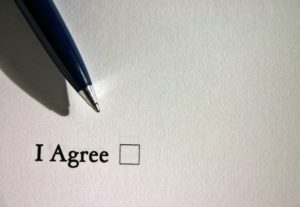Many jobs require proof of a potential employee’s credibility. Important factors include whether an individual has a criminal record and if an individual is barred from working with vulnerable adults or children.

Most companies use the checks to gain an insight into an employee’s history. The checks are essential to protect certain industries from individuals that may be unsuitable for the role.
There are different ways in which an applicant can get a DBS check and a set of documents verify the individual’s identity.
Primary Identity Documents
Group 1 documents include passports, residence permits, a provisional or full driving licence, birth certificates and adoption certificates. Applicants should be able to show at least one primary identity document from group 1, and at least one document needs to show the individual’s address.
Trusted Government Documents
Sometimes individuals may only have one primary identity document or none. In this case they need to provide documents from Group 2a. Trusted government documents include driving licences, birth certificates issued after the time of birth, marriage or civil partnership certificates, HM forces ID cards and firearms licences.

Financial and Social History Documents
If the individual can’t provide enough evidence from other groups, they are able to use financial and social history documents. Group 2b documents include mortgage and bank statements, credit card statements, financial statements, P45 or P60 statements, work permits, council tax statements, utility bills, benefit statements, supporting letter from employers and letters from head teachers.
Further Things to Consider
There are different routes to take when applying for a check, and the more primary documents an individual has the easier it is to obtain certification. If the applicant cannot provide the documentation required, then they may be fingerprinted.
Employers need to ensure they use a reputable company such as carecheck.co.uk to get all the information on a potential employee. Checks must be carried out to safeguard vulnerable individuals from people that could cause them harm.
Applicants must also ensure they fill out the address part of the form correctly if they have an unusual address. A five-year history is checked, and unusual factors that are checked include canal boats, sheltered accommodation, frequent travellers, members of HM forces, students, prisons and of no fixed abodes.













